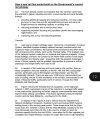HSTEd
Veteran Member
- Joined
- 14 Jul 2011
- Messages
- 18,620
Given how badly HS2 construction has gone, and the steadily deteriorating classic railway finances, I can't see any appetite for blowing that much money on it.I agree that phase 1 should be concentrated on for the next couple of years but there's absolutely no reason phase 2a couldn't begin 2028 once phase 1 resources are freed up. That's a completely realistic and sensible position. It can easily be done within the resources currently allocated to rail.
Classic railway operational subsidies are running a billion pounds per month as it is and I don't see that fundamentally changing any time soon.
Classic railway subsidies already run 0.5% of GDP by themselves. Road spending is comparable.
There is little left given how badly the railway has handled all recent projects.
EDIT:
Ofcourse, there is likely an increasing chance that completion of HS2 phase 1 works will be delayed beyond 2027, and Euston construction will consume many billions beyond that.
Last edited:

